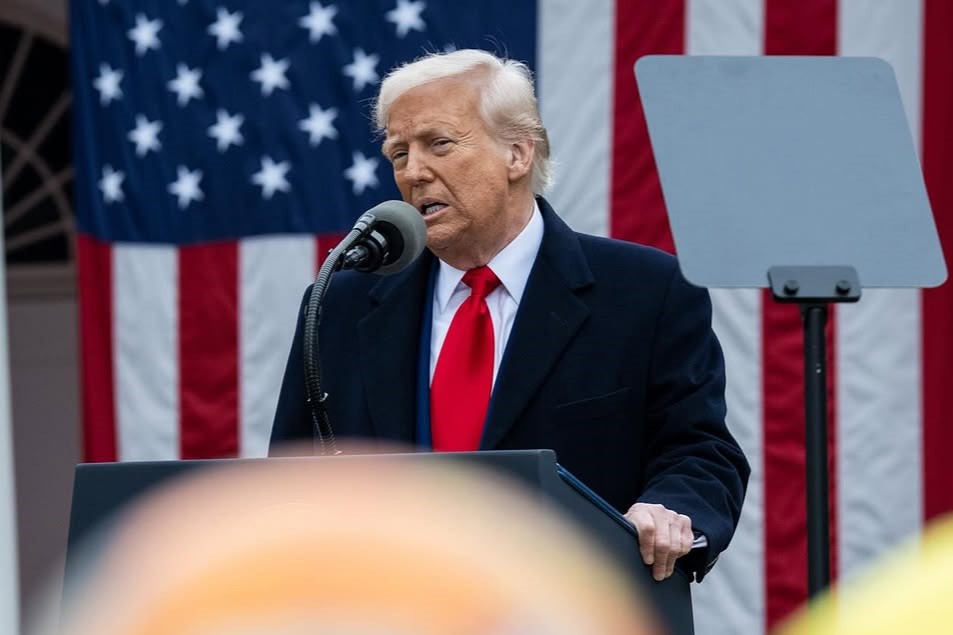KUALA LUMPUR – As US President Donald Trump sparks tensions in global trade with his “Liberation Day” reciprocal tariff push on Malaysia and several other countries, economists have called upon Putrajaya to react by easing trade restrictions and tariffs on American products to help persuade the economic superpower to reduce its imposed rates.
Geoffrey Williams of Williams Business Consultancy said that while tariffs imposed on most American products by Malaysia are quite low, there are other restrictions imposed, such as approved permits (APs) for automobiles or halal standards that are much higher than those imposed by other Muslim nations.
Speaking to Scoop, the economist suggested that Malaysia should be cutting these restrictions and moving towards negotiating freer access to Malaysian markets for American exports as a countermeasure to Trump’s tariff push.
“If the 24% reciprocal tariff can be negotiated down through positive reciprocal removal of restrictions, then the negative impact can be minimised,” he said when contacted.
“Otherwise, the impact could be big because the US is Malaysia’s second-largest single export market, and net trade has been trending down, which drags on GDP and would require a revision of the economic growth forecast.”
Meanwhile, Barjoyai Bardai from the Malaysia University of Science and Technology told Scoop that Malaysia is imposing a 47% tariff on American automobiles, including electric vehicles, despite the fact that Malaysia does not import many of these vehicles due to low domestic demand.
“If we lowered the rate to 24%, for example, it would not affect much of our automotive industry in Malaysia,” said the economist when contacted.
“But that will create a better image (to the US) so that now we can tell them (US) that now we are reducing the tariff from 47% to 24%, you should reciprocate back (by) reducing your tariff from 24% to 12% perhaps.”
Williams also said that tariffs are “a negotiating position” and could be short-lived if people behave calmly and reasonably in cutting rather than raising trade restrictions in response.
“I don’t see much of an inflationary effect unless Malaysia reacts by raising tariffs on US imports. In fact, it might cause companies to try to sell in the domestic market rather than export to the US, and this could lower prices here due to excess supply. But these are medium- to long-term issues, and I expect a negotiation of lower tariffs and import restrictions,” he added.
Yesterday, the International Trade and Industry Ministry (Miti) announced that it would not impose a retaliatory tariff against the US because the domestic demand, which is the country’s main driver of growth, remains robust.
The US has imposed a 24% import tariff on Malaysian goods as part of a sweeping set of trade measures announced by Trump, which would take effect next Wednesday (April 9). Malaysia joins a list of countries facing elevated tariffs, including China (34%), the European Union (20%), Vietnam (46%), Sri Lanka (44%), Cambodia (49%), Laos (48%), and Myanmar (44%).
According to Reuters, some tariffs would not stack on top of the reciprocal duty as imports that are subject to separate 25% tariffs under Section 232 of the US’ Trade Act 1962 will be excluded, including autos and auto parts, steel, and aluminum.
The exemption also extends to other sectors subject to ongoing or potential Section 232 national security investigations, including copper, lumber, semiconductors, and pharmaceuticals. A forthcoming annex will also enumerate other exempted products, including certain critical minerals, energy, and energy products.
Pointless to negotiate with US
Barjoyai, when asked whether Malaysia should negotiate with the US to persuade it to reduce the reciprocal tariff, says that such a move would be pointless as Trump actually provided a “concession” by imposing just a 24% tariff when Malaysia imposed 47%.
He said that Malaysia should focus on venturing into other markets that are attractive in the east, gradually moving away from its dependency on the US, as well as continue focusing on its de-dollarisation strategy.
“Malaysia has been struggling with the US in bilateral trade, as we have been negotiating on the double tax agreement for over 70 years unsuccessfully. So, we should not be too bothered about the US market anymore in the future,” he added.
Bilateral trade between Malaysia and the US reached RM324.9 billion in 2024, with the US being Malaysia’s third-largest trading partner. Total goods trade between the two nations amounted to US$80.2 billion in 2024, with US exports to Malaysia rising by 43.5% to US$27.7 billion, while Malaysian exports to the US increased by 13.7% to US$52.5 billion.
Among Malaysia’s top exports to the US are electrical and electronic equipment (US$23.68 billion), machinery including nuclear reactors and boilers (US$6.30 billion), optical, photo, technical, and medical apparatus (US$3.89 billion), and rubber products (US$1.69 billion).
Malaysia also exported approximately US$16.2 billion worth of semiconductors to the US in 2024, accounting for nearly 20% of US semiconductor imports, according to Reuters. – April 4, 2025


